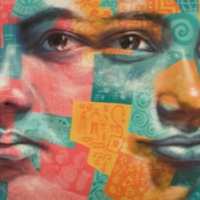
Andemariam
There is an estimated 48,000 people living in modern slavery in Libya (GSI 2018). Libya is a major transit destination for migrants and refugees hoping to reach Europe by sea. Human trafficking networks have prospered amid lawlessness, created by the warring militias that have been fighting for control of territories since the toppling of Muammar Gaddafi in 2011. Highly organized trafficking and migrants smuggling networks that reach into Libya from Niger, Nigeria, Chad, Eritrea, Ethiopia, Somalia, Sudan, and other sub-Saharan states subject migrants to forced labor and forced prostitution through fraudulent recruitment, confiscation of identity and travel documents, withholding or non-payment of wages, debt bondage, and verbal, physical, and sexual abuse. In some cases, migrants reportedly pay smuggling fees to reach Tripoli, but once they cross the Libyan border they are sometimes abandoned in southern cities or the desert where they are susceptible to severe forms of abuse and human trafficking. Andemariam, an Eritrean man, had been living and working in Sudan for over a decade when he was duped into taking the journey to Libya, where he’d been told there would be better employment opportunities. Andemariam and his friend were handed over to Libyan smugglers who imprisoned them in a store for two months before embarking on a difficult sea journey. Upon arrival in Italy, Andemariam had lost all his belongings, was sick, and was unable to find work. He later traveled to Germany to seek. medical attention At the time of the interview (2015) he was still waiting to hear about his refugee status.
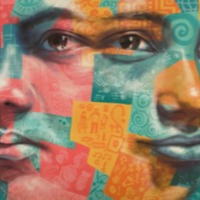
Melody
There are an estimated 136,000 people living on conditions of modern slavery in the United Kingdom (Global Slavery Index 2018). According to the 2017 annual figures provided by the National Crime Agency, 5, 145 potential victims of modern slavery were referred through the National Referral Mechanism in 2017, of whom 2,454 were female, 2688 were male and 3 were transgender, with 41% of all referrals being children at the time of exploitation. People are subjected to slavery in the UK in the form of domestic servitude, labour exploitation, organ harvesting and sexual exploitation, with the largest number of potential victims originating from Albania, China, Vietnam and Nigeria. This data however does not consider the unknown numbers of victims that are not reported. Melody was brought from Nigeria to the UK by a family friend at 12 years old. Upon arrival she was taken to a woman’s house where she was forced to clean every day for long hours under constant verbal abuse. This woman started bringing men to the house to sexually abuse Melody. Melody was kicked out of the house one day when she refused to sleep with one of the men the woman had brought to her. She spent months homeless on the street where she was subjected to further sexual violence. She was finally able to leave her situation with the help of an advisor from Refugee Council.
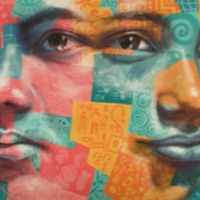
Francis Bok (Narrative 2)
There are an estimated 465,000 people living in modern slavery in Sudan (GSI 2018). Traffickers exploit foreign and domestic victims in the country. Migrant children from West and Central Africa are exploited in forced labour for begging, public transportation, large markets and sex trafficking. Business owners, informal mining operators, community members and farmers exploit children working in brick making factories, goldmining, collective medical waste, street vending and agriculture. Children are exposed to threats, physical and sexual abuse, as well as hazardous working conditions and limited access to education or health services. At the age of four Francis Bok was kidnapped from a local market in South Sudan and forced into domestic slavery in northern Sudan. For 10 years he was forced to work long hours with no rest, treated like an animal by the family he worked for. Bok tried to escape twice before was finally being successful, reaching a refugee camp in Egypt. After a while in the camp he was able to get refugee status in the United States. In 2011 Francis Bok returned to South Sudan and works as a public relations manager at a construction company.
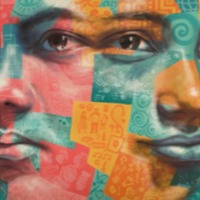
Asseel
There are an estimated 10,000 people living in modern slavery in Lebanon (GSI 2018). Men, women, and children among the estimated 1.3 million Syrian refugees in Lebanon are at high risk of sex trafficking and forced labour. There are some restrictions on Syrians’ ability to work legally in Lebanon and the enforcement of visas and residence permit laws increase this population’s vulnerability to trafficking. Syrians are commonly involved in the exploitation of other Syrians in Lebanon, particularly targeting refugees fleeing the conflict. Syrian children are reportedly vulnerable to forced early marriages—which can lead to commercial sexual exploitation and forced labour—and children displaced within the country continue to be subjected to forced labour, particularly by organized begging rings. At the age of nine, Asseel* left her native Syria with her family, leaving behind friends and loved ones as the war ravaged her country. Her family began a new life as refugees in Lebanon.
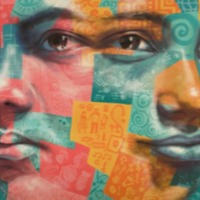
Lee CS
The Global Slavery Index 2018 estimates that there are 2,640,000 people living in conditions of modern slavery in The Democratic People’s Republic of Korea (North Korea). Men, women and children are subjected to forced labour and sex trafficking. Government oppression in the DPRK prompts many North Koreans to flee the country in ways that make them vulnerable to human trafficking in destination countries. Many of the estimated 10 000 North Korean women and girls who have migrated illegally to China to flee abuse and human rights violation are particularly vulnerable to trafficking. Some lure, drug, detain or kidnap North Korean women on their arrival, others offer jobs but subsequently force the women into prostitution, domestic service, or forced marriage. If found, Chinese authorities often repatriate victims back to the DPRK where they are subjected to harsh punishment including forced labour in labour camps or death. Lee CS was taken to China by a man she thought loved her. Upon arrival she was sold to a farmer, kept locked up and forced to become his partner.
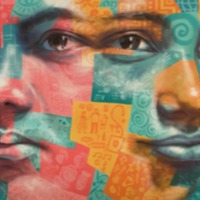
Su-Jin Kang
The Global Slavery Index 2018 estimates that there are 2,640,000 people living in conditions of modern slavery in The Democratic People’s Republic of Korea (North Korea). Men, women and children are subjected to forced labour and sex trafficking. Government oppression in the DPRK prompts many North Koreans to flee the country in ways that make them vulnerable to human trafficking in destination countries. Many of the estimated 10 000 North Korean women and girls who have migrated illegally to China to flee abuse and human rights violation are particularly vulnerable to trafficking. Some lure, drug, detain or kidnap North Korean women on their arrival, others offer jobs but subsequently force the women into prostitution, domestic service, or forced marriage. If found, Chinese authorities often repatriate victims back to the DPRK where they are subjected to harsh punishment including forced labour in labour camps or death.Su-Jin Kang escaped North Korea to South Korea in 2002. She tells of how North Korean refugee women are often trafficked in China or face forced repatriation back to North Korea where they will be put into a labour camp.
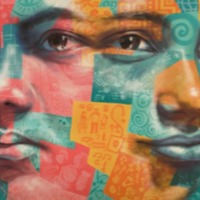
Elias
There are an estimated 451,000 people living in modern slavery in Eritrea (GSI 2018). The small country has a unique system of compulsory, open-ended military service for citizens that makes it one of the most oppressive states in the world. The government has enforced its current policy of sending all secondary school students to serve for a minimum of twelve months since 2003. While Eritrean law puts the minimum conscription age at 18, many teenagers find themselves recruited during high school at age 16 or even younger. In rural areas, where formal education is rarer, the army will visit villages to round up young girls and boys who look roughly of age, to begin their program of combat training and forced labour. Elias was 15 years old when he was imprisoned for attempting to flee Eritrea. He was then sent to a military training camp where he tells of the starvation and beatings he and other children endured. Elias was finally able to escape and leave the country.
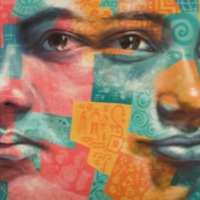
Chewa
There are an estimated 3.8 million people living in conditions of modern slavery in China (GSI 2018). Women and girls from South Asia, Southeast Asia and Africa are trafficked in to forced marriage in the country for fees of up to £30,000. The gender imbalance caused by the One Child Policy and the cultural preference for male children, has caused a shortage of women which has led to the trafficking of women to be sold as brides. As a result many women find themselves either deceived by promises of employment, sold or abducted and forced into marrying Chinese men who have paid for them. Kachin people are an ethnic minority who are predominantly Christian. Armed conflict between Myanmar military and the Kachin Independence Army has made life in the area difficult. This was exacerbated in 2011 with the end of a cease fire that left over 100,000 people internally displaced. In the camp where many of these people live there is little opportunity to earn a living. The government have made it worse by blocking aid to displaced people. This has led to women and girls becoming particularly vulnerable to trafficking as they search for jobs outside the country, often in China. Chewa was looking for work and told she would find it more easily further from the border. She followed two agents across the border to China where she was forced to marry a Chinese man.
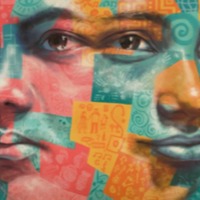
Chesa
There are an estimated 3.8 million people living in conditions of modern slavery in China (GSI 2018). Women and girls from South Asia, Southeast Asia and Africa are trafficked in to forced marriage in the country for fees of up to £30,000. The gender imbalance caused by the One Child Policy and the cultural preference for male children, has caused a shortage of women which has led to the trafficking of women to be sold as brides. As a result many women find themselves either deceived by promises of employment, sold or abducted and forced into marrying Chinese men who have paid for them. Kachin people are an ethnic minority who are predominantly Christian. Armed conflict between Myanmar military and the Kachin Independence Army has made life in the area difficult. This was exacerbated in 2011 with the end of a cease fire that left over 100,000 people internally displaced. In the camp where many of these people live there is little opportunity to earn a living. The government have made it worse by blocking aid to displaced people. This has led to women and girls becoming particularly vulnerable to trafficking as they search for jobs outside the country, often in China. Chesa was trafficked from Myanmar to China and forced to marry a Chinese man. She tells of how, in unfamiliar surroundings in a strange country, she had her movement restricted and did not know how to escape.
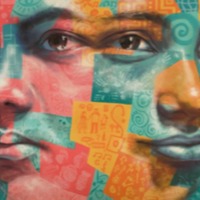
Bennu
There are an estimated 3.8 million people living in conditions of modern slavery in Chian (GSI 2018). Women and girls from South Asia, Southeast Asia and Africa are trafficked in to forced marriage in the country for fees of up to £30,000. The gender imbalance caused by the One Child Policy and the cultural preference for male children, has caused a shortage of women which has led to the trafficking of women to be sold as brides. As a result many women find themselves either deceived by promises of employment, sold or abducted and forced into marrying Chinese men who have paid for them. Kachin people are an ethnic minority who are predominantly Christian. Armed conflict between Myanmar military and the Kachin Independence Army has made life in the area difficult. This was exacerbated in 2011 with the end of a cease fire that left over 100,000 people internally displaced. In the camp where many of these people live there is little opportunity to earn a living. The government have made it worse by blocking aid to displaced people. This has led to women and girls becoming particularly vulnerable to trafficking as they search for jobs outside the country, often in China. Bennu was living in a Kachin refugee camp when she was trafficked to China and forced to have a sexual relationship with a Chinese man. She was also forced to do all the housework. Bennu was able to escape with the help of a fellow Kachin man.
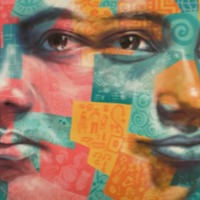
Mo
There are an estimated 136,000 people living on conditions of modern slavery un the United Kingdom (Global Slavery Index 2018). According to the 2017 annual figures provided by the National Crime Agency, 5, 145 potential victims of modern slavery were referred through the National Referral Mechanism in 2017, of whom 2,454 were female, 2688 were male and 3 were transgender, with 41% of all referrals being children at the time of exploitation. People are subjected to slavery in the UK in the form of domestic servitude, labour exploitation, organ harvesting and sexual exploitation, with the largest number of potential victims originating from Albania, China, Vietnam and Nigeria. This data however does not consider the unknown numbers of victims that are not reported. Mo was living in Myanmar (Burma) when he was forced to leave after the persecution of Muslim people. He was staying in a refugee camp with his family which he describes as a ‘prison’. After running away he travelled by lorry to the UK. He was put in to a house and forced to work in a restaurant for little pay and no days off. Mo is now in a safe house, waiting for his passport and papers to be able to work.
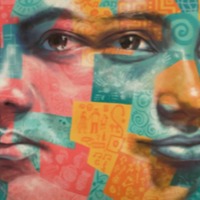
John A.
There are an estimated 136,000 people living on conditions of modern slavery un the United Kingdom (Global Slavery Index 2018). According to the 2017 annual figures provided by the National Crime Agency, 5, 145 potential victims of modern slavery were referred through the National Referral Mechanism in 2017, of whom 2,454 were female, 2688 were male and 3 were transgender, with 41% of all referrals being children at the time of exploitation. People are subjected to slavery in the UK in the form of domestic servitude, labour exploitation, organ harvesting and sexual exploitation, with the largest number of potential victims originating from Albania, China, Vietnam and Nigeria. This data however does not consider the unknown numbers of victims that are not reported. After losing his job due to his sexual orientation and the death of his mother, John fled Uganda after his family blamed him for her death. John travelled to Edinburgh with a friend who told him he could get a good job and have a better future. However, upon arrival his passport was confiscated and he was locked in a room for a month. John ran away after one of the men keeping him tried to force him to perform a sexual act. John was referred to Migrant Help who assisted in obtaining him refugee status.
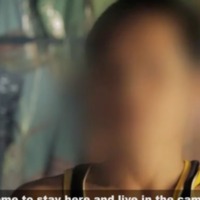
Saw Pol Lu
The UN has estimated that the number of refugees, asylum seekers and internally displaced people around the world has topped 65 million. Many of these people live in refugee camps across the globe. In Myanmar (Burma), thousands of people have fled civil war and found themselves confined to refugee camps in Thailand where they are vulnerable to human trafficking. In an attempt to provide for their families, refugees are lured for employment in Thailand and Malaysia then sold to employers as forced labourers. Saw Pol Lu fled Myanmar (Burma) to escape the civil wars and now lives in Mae La refugee camp along the Thai boarder. Here the widespread corruption and failed Thai policy led Saw Pol Lu, along with thousands of other refugees, in to the hands of human traffickers. Saw Pol Lu tells of the conditions and dangers faced by Burmese refugees in Thailand.